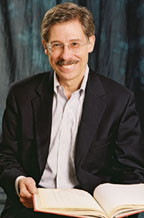“Membranes: The Vanguard of Large Scale Low Energy Intensity Separations“

William J. Koros,
Georgia Institute of Technology
Friday, December 4, 2009
3:00 p.m., 66-110
William J. Koros is an advocate for technology-assisted strategies to reduce the energy intensity and carbon dioxide footprints of chemical processes. He is leader in the development of advanced separation membranes and sorbents and an expert in the formation of advanced hollow fiber membranes and sorbents with composite structures.
He is currently the Roberto C. Goizueta Chair and Georgia Research Alliance Eminent Scholar in Membranes at the Georgia Institute of Technology.
Dr. Koros received his BS, MS and PhD in chemical engineering at the University of Texas. He spent four years in the Polymer Processing Group with the E. I. DuPont Company. In 1977 he joined the faculty at North Carolina State University, and in 1984 he moved to the University of Texas at Austin where he served as chairman of Chemical Engineering from 1993 to 1997. Dr. Koros served as the editor-in-chief of the Journal of Membrane Science for 17 years from 1991-2008. He has also served as the secretary of the North American Membrane Society and on the editorial boards for numerous journals.
Dr. Koros joined the School of Chemical Engineering at Georgia Institute of Technology in 2001. He has published over 300 articles and holds 14 US Patents in the areas of sorption and transport of small molecules in membranes, barrier materials and sorbents. His research has been recognized by the AIChE Institute Award for Excellence in Industrial Gases Technology in 1995 and the AIChE Separation Division Clarence Gerhold Award in 1999. He was elected to the National Academy of Engineering in 2000, and was named a Fellow of the American Institute of Chemical Engineers in 2002 and a Fellow of the American Association for the Advancement of Science in 2003. In 2008, Dr. Koros received the Alan S. Michaels Award for Innovation in Membrane Science and Technology from the North American Membrane Society. He is one of 12 KAUST Investigators selected worldwide to help launch the King Abdullah University of Science and Technology in Saudi Arabia focused on solving key problems facing mankind.

